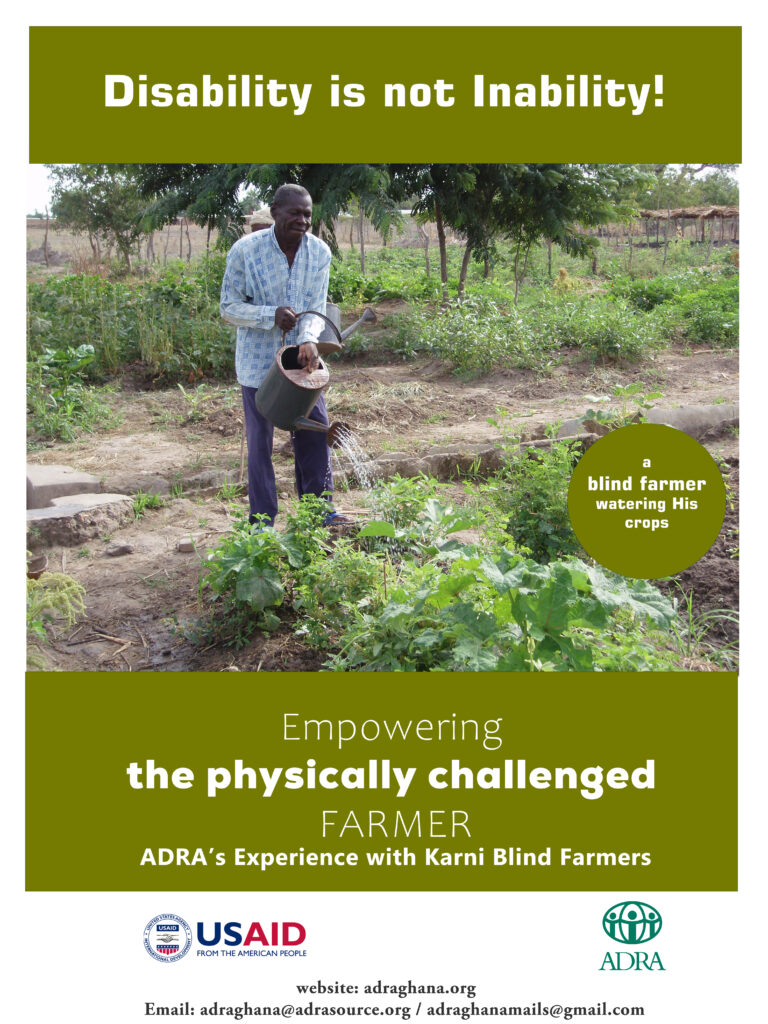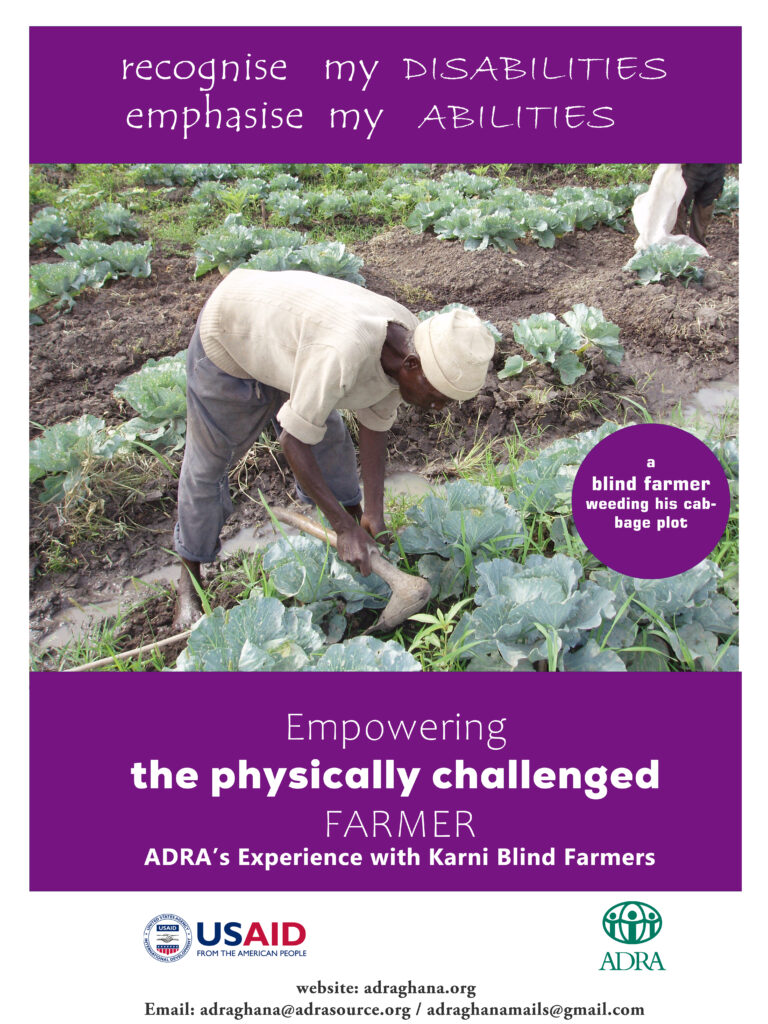Blindness and poverty are strongly related; living in poverty is not just about lack of money, it can also mean feeling isolated, powerless, and discriminated against. However, in the face of systemic barriers, the blind population in Karni has demonstarated resilience and determination through the support of ADRA Ghana and its funding agency (USAID). Determined to overcome the challenges presented by their blindness, they have strived to achieve equity and equality in their society.
Dr. Anthony Mainoo (Manager, Agriculture, and Food Security Projects)
March 21, 2023




The Adventist Development and Relief Agency (ADRA) is a global humanitarian organization with a network spanning over 120 countries, delivering relief and development to individuals and communities through integrated development and emergency management programs. Since its establishment and registration in Ghana in 1983, ADRA has attained a strong presence in Ghana, including the five northern regions, Volta, Eastern, and the Bono regions. ADRA fosters sustainable solutions in health, education, Agriculture and Food Security, as well as sustainable livelihoods and emergency response sectors, without discrimination. We deliver culturally relevant programs by partnering with local communities, organizations, government agencies, institutions, and departments and building local capacity for sustainable change. The Agency’s work is grounded in its motto of Compassion, Justice, and Love, driving its purpose to “serve humanity so all may live as God intended” with dignity and hope.
ADRA promotes equal opportunities and campaigns for inclusion so everyone can achieve their dreams and participate fully in society. Together with our partners, we believe we can create a more equal world where everyone can access health care, education, and employment without discrimination. ADRA Ghana is committed to uplifting the most vulnerable populations, including Persons with disabilities (PWDs), by providing them with opportunities for growth and self-sufficiency. Upholding the rights of PWDs and ensuring equality, diversity, and inclusion for all has been a vital part of ADRA’s work for decades.
ADRA Ghana, though a member of a network of 120 international supporting and implementing country offices, is an autonomous entity and has a 17-member Board of Directors. The board comprises professionals of different expertise across the four focus areas. ADRA Ghana’s greatest asset is its staff. The agency has a fully staffed Administration, including a Country Director, who reports to the ADRA Ghana Board and Directors for various core portfolios. ADRA Ghana staff members are highly qualified nationals with extensive in-country and international experience.
ADRA Ghana’s strength lies in its 30 experienced and dedicated staff with expertise in project planning and management, agriculture and extension services delivery, food security and livelihoods, financial management, monitoring, evaluation, accountability and learning (MEAL), geospatial analysis, community mobilization skills, and a robust network including local communities, governmental bodies, and international partners. ADRA also has well-furnished and equipped headquarters in Accra, three (3) zonal offices in Kumasi, Techiman, and Tamale, and field offices in Sekondi and Zebila. Additionally, ADRA has cross-country vehicles and motorbikes for its field operations. Finally, the Agency has enhanced its monitoring and reporting capabilities by procuring state-of-the-art GIS Decision Support Systems (GDSS), including drones and advanced digital equipment. These tools enable us to gather real-time data efficiently and visualize it through interactive dashboards, facilitating data-driven decision-making and robust project management practices.